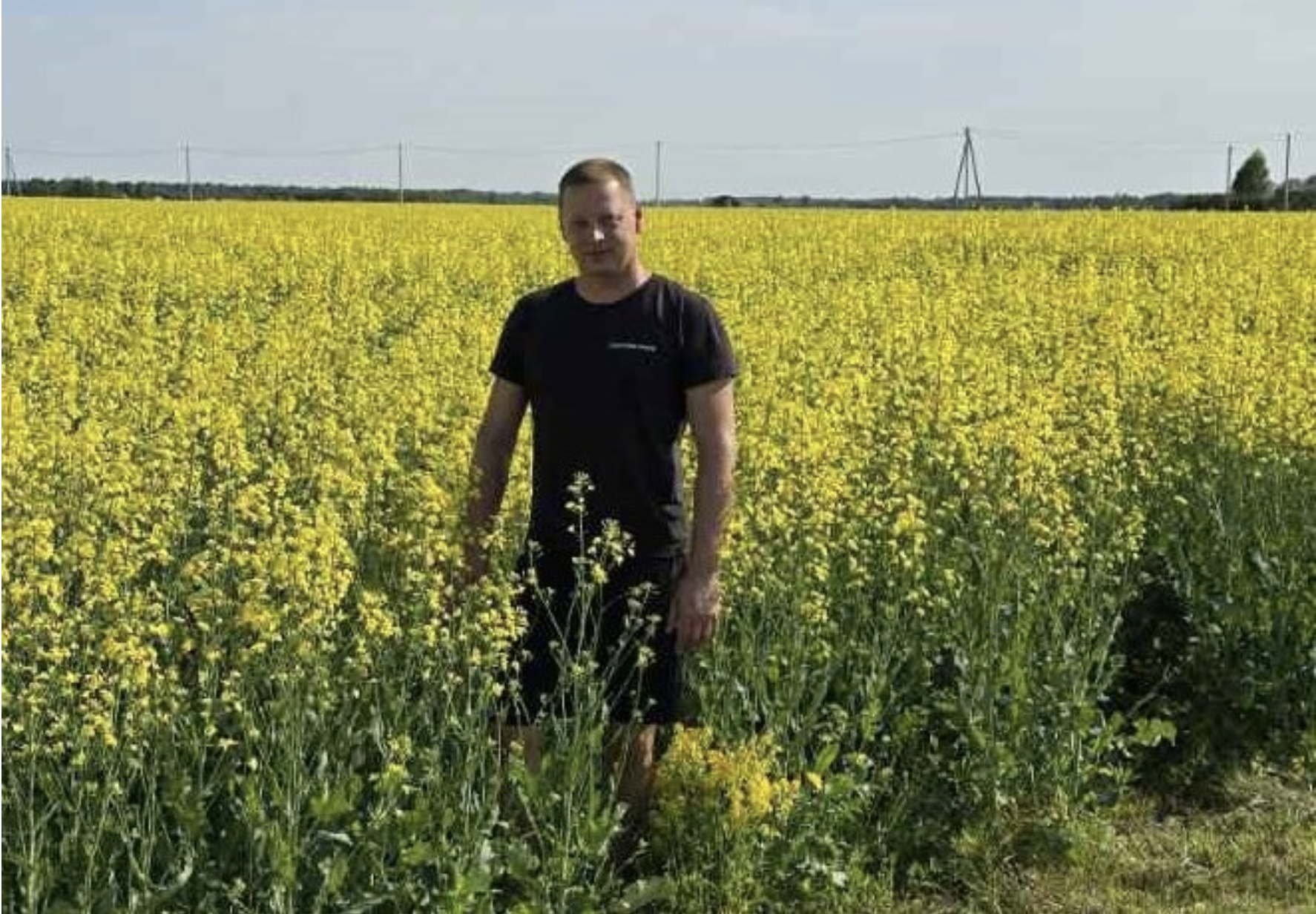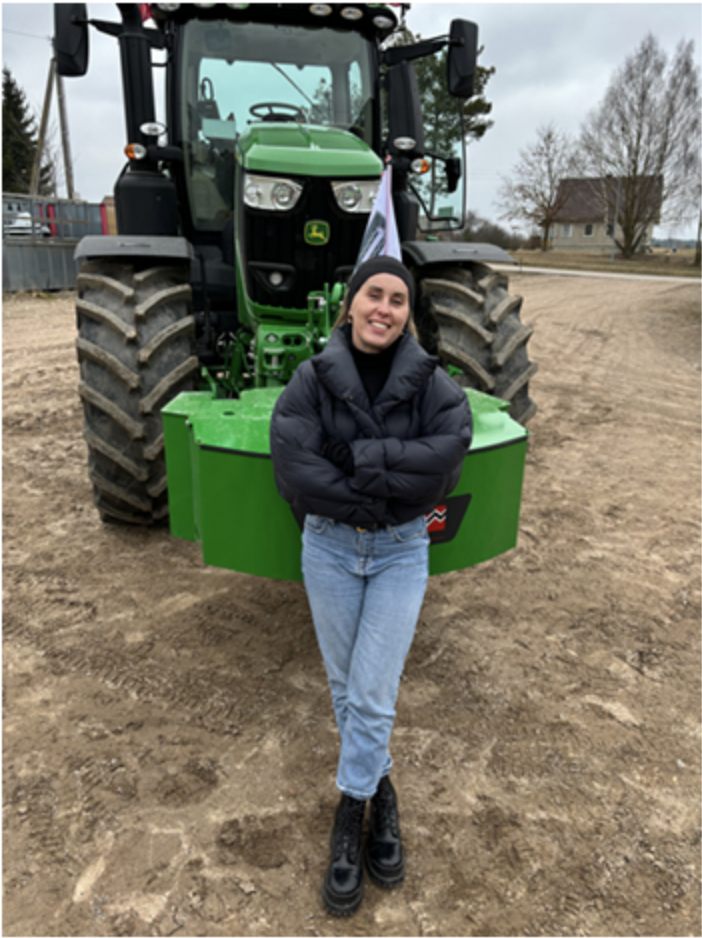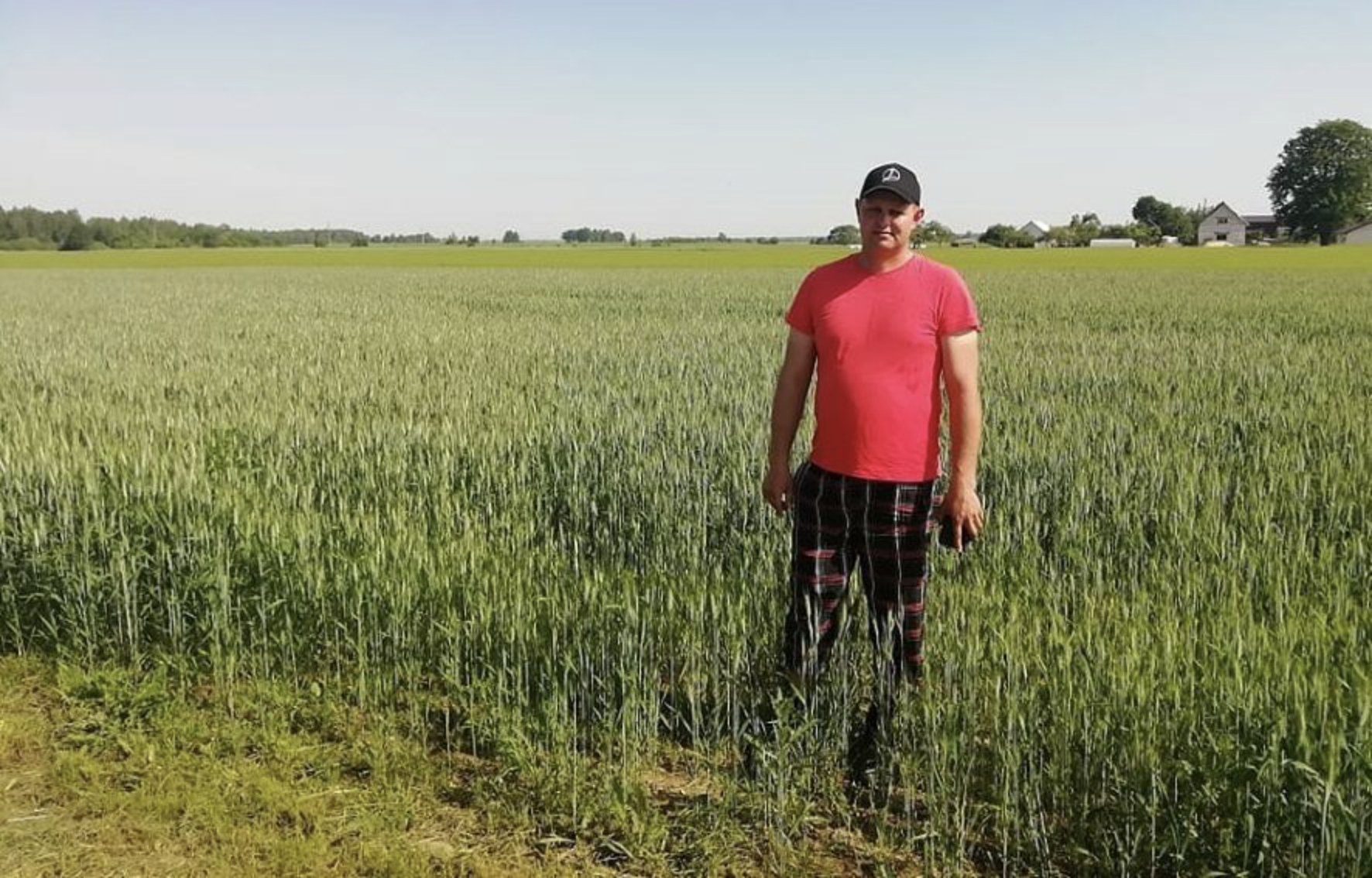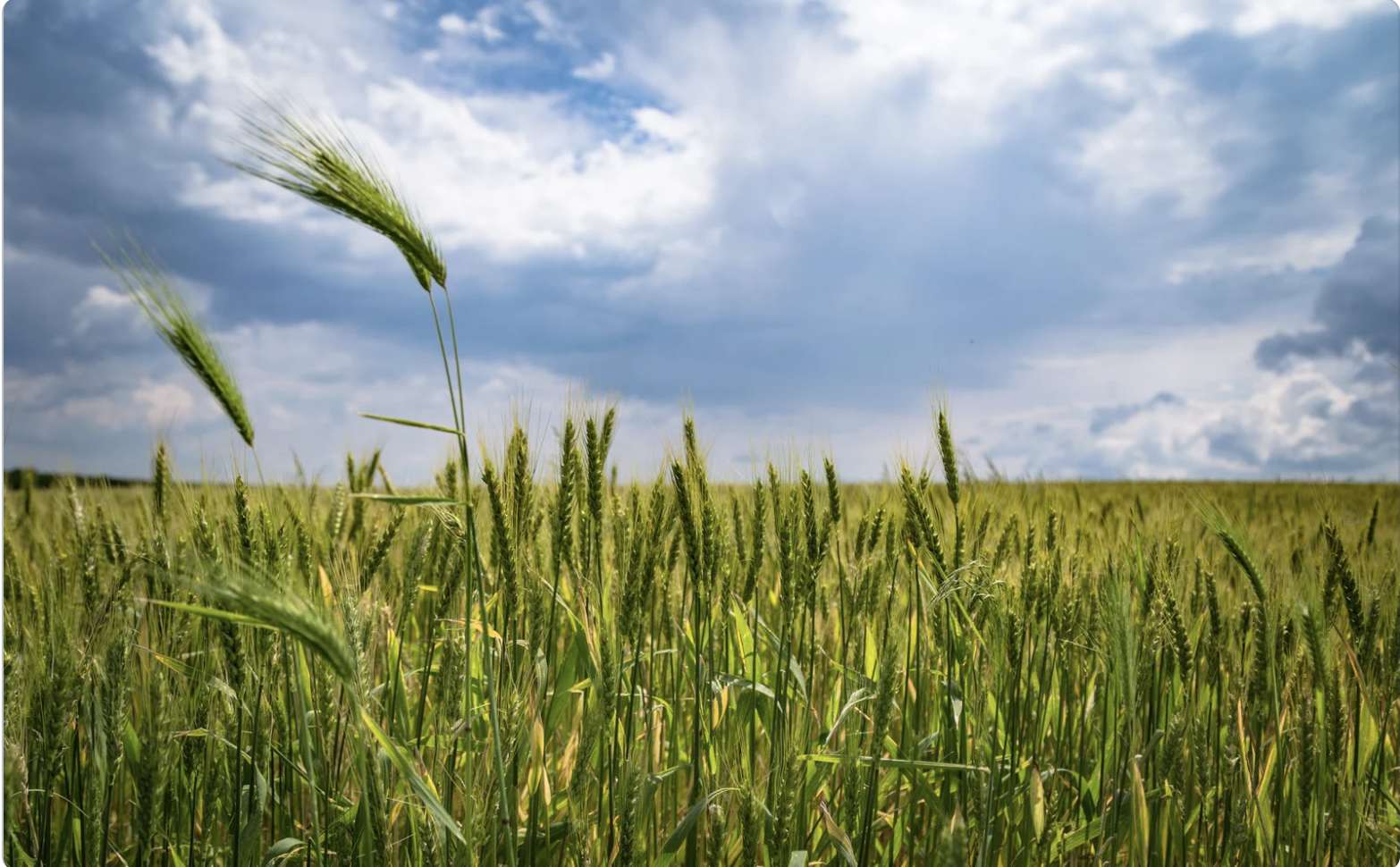Farmers transitioning to sustainable farming are not looking back. We spoke to three sustainable farm owners who apply more and more sustainable farming practices each year. They say their yields have increased or remained the same, but they have reduced expenses for fertilizers and fuel. When additional capital was needed, they received interest-free loans from “HeavyFinance” Green loans.
Success is achieved in different ways – through hard work, interest in innovations and their implementation, experiments, proper management, and finances – each farmer has their own story.
Olegas Naturjevas
Owner of a 400 ha crop farm
(Kaunas district)

We have been farming for three generations: my father chose this path more than thirty years ago, I joined in 2004, and last year, my son joined us. We grow winter crops such as barley, wheat, rapeseed, and legumes – peas and beans. We have been practicing crop rotation since the farm was established, we plant cover crops, and we test the soil.
I transitioned to new technologies gradually. I used to plough some of the fields and cultivate others. Now, we only cultivate, working minimally with strip-till technology. In some areas, we plant directly. What made you give up the plough? I am interested in innovations and current trends, and I consult with fellow farmers and advisors. Of course, there are economic benefits – lower costs and faster work. Since we disturb the soil less, we avoid greater soil erosion. By reducing the amount of mineral fertilizers, we use biological fertilizers and have also tested organic ones. I’ve noticed that the soil is easier to work, and soil tests have shown an increase in humus, with less waterlogging in the fields.
Of course, to move to other technologies, funds were needed. When I started to look into non-banking alternatives, I discovered “HeavyFinance” on social media. I made a call. We talked and started working together – simpler, faster and more flexible. I have used all their products: development and Green loans, and half of my land is in the Carbon Farming Programme.
I took out a Green loan two years ago. It’s a great offer – extra money and a loan at 0% interest. Once I have paid off the loan, I will be the beneficiary of the sale of the carbon certificates and should receive additional income from the carbon emission certificates created and sold on the farm. This is a relatively new product, so we will see the benefits a little bit later. We will do tests on the land to see how much carbon it has accumulated. The carbon certificates will be calculated from that.
Jolanta Greinienė
Owner of a 1500 ha crop farm
(Kaišiadorys district)

We are the second generation of farmers after independence. We have come a long way and in record time we are now world-class players. We are smart entrepreneurs, hard-working, educated, skilled in advanced technologies, well-travelled, fluent in foreign languages, able to dress neatly and want to live with dignity. So the farmer is a far cry from the farmer of our parents’ time, even though many of us are their students. I am no exception.
I’m an accountant, so my uncle taught me the basics of agronomy. I was delighted when he offered me the chance to move from the capital to the countryside and continue farming. I took off my high heels, put on rubber boots and my husband and I have been working on the farm together for 11 years.
We started with 40 hectares, and now we manage about 1500 hectares of crop production. We mainly grow winter crops: wheat, oilseed rape and barley. We grow catch crops, clover. This year we have sown spring barley, we will try to grow malt and buckwheat.
Since I started farming, I’ve been interested in how to work the land so that it doesn’t become waterlogged and is left healthy for future generations. This is very important to me. We looked for organic fertilisers, bacteria, and gradually reduced mineral fertilisers. We just have to find our own way. In our soil, you will find fungi and earthworms. We are always experimenting, we are open-minded. Of course, you can choose a safe middle ground – cultivate at 5 t/ha, use proven products. But today, the farmer is a businessman and has to take risks. I want to grow 7 t/ha and I want to do that by improving the soil as much as possible. And when you have reliable financial partners like “HeavyFinance”, it’s easier to make things happen.
The community has been in place since they were founded four years ago, in the spring, when farmers earn the least. An opportunity arose to buy land, but I wanted to keep the 20% advance payment from the bank for production. I looked for alternatives. I saw a company advertisement on Facebook . From the first sentence, we found a common language – it’s easy, all you have to do is call.
I took a loan to buy agricultural land, build a warehouse, for working capital, and an interest-free loan. I was a reliable customer, so they offered me the opportunity to participate in a sustainable Carbon farming Programme. This option suited me very well. We have been participating for almost four years now. Every year, the company’s consultants carry out soil tests. Everything is going well. That means we are on the right track. I am satisfied.
It is the nature. Soil improvement measures, correct tillage, require patience and 4-5 years. Farming is an insanely demanding physical job. Sometimes it is hard to even comprehend in one’s mind that one can bear such a load.
I wish for Lithuania not to abandon farms, but to allow them to be grown from one generation to the next, with respect, in a business that is passed on. I want a prosperous Lithuania, rich, happy, designed for people to live comfortably.
Simonas Butkus
Owner of a 300 ha crop farm
(Pakruojis district)

I searched the internet for creditors – I was going to buy tools for in-farm farming. I saw information on “HeavyFinance” about the availability of interest-free loans. I went to the office in Vilnius, received a warm, friendly welcome, and was given a full information. I have used all their products – an agricultural loan, a Green loan, and for the first year I am also part of the Carbon Farming Programme.
I really like the exceptional settlement schedule, many of the processes are more flexible, simpler, quicker and have fewer requirements than a regular bank.
I have been farming for 16 years. I try to do it sustainable. There is very little land left where I use chemicals, and at very minimal rates.
I have two farms. On one, I only farm organically, especially where the land is poor. About a third of the farm is devoted to it. And the soils there are interesting: clay at one end, peat at the other. We have sand, stones and even rubble. We grow peas, oats, rye and buckwheat organically. Where the land is good, we grow winter wheat, oilseed rape and spring triticale. I don’t try to achieve maximum yields, because that is often disappointing. Last year, for example, a hailstorm left half the crop in the field and more than EUR 100 000 in monetary terms.
We work the land minimally, we grow intercrops and mustard much earlier than the eco-schemes, we use crop rotation, and a smart calculation of fertilisers and chemistry helps a lot – we get by with less fertilisers and pesticides.
We haven’t tested the soil yet, but we are monitoring the weeds in the crop and analysing them. They can tell us a lot about soil acidity and other properties. We are part of the Carbon Farming Programme, which is really easy to join. I think it makes sense to participate. First of all, it is good for the climate, it saves time with minimum tillage, it reduces the other inputs needed for farming, and at the same time it reduces emissions.
Will others join it? This is an individual decision, as it is determined by many factors, such as the soil on the farm, the machinery and implements available, and the ratio of rented to owned land. After all, every farm is different, as is its farming history. I have made up my mind.
Farmers were interviewed by Ramunė Sutkevičienė, Editor-in-Chief, Lithuanian Agricultural Advisory Service, agroakademija.lt

